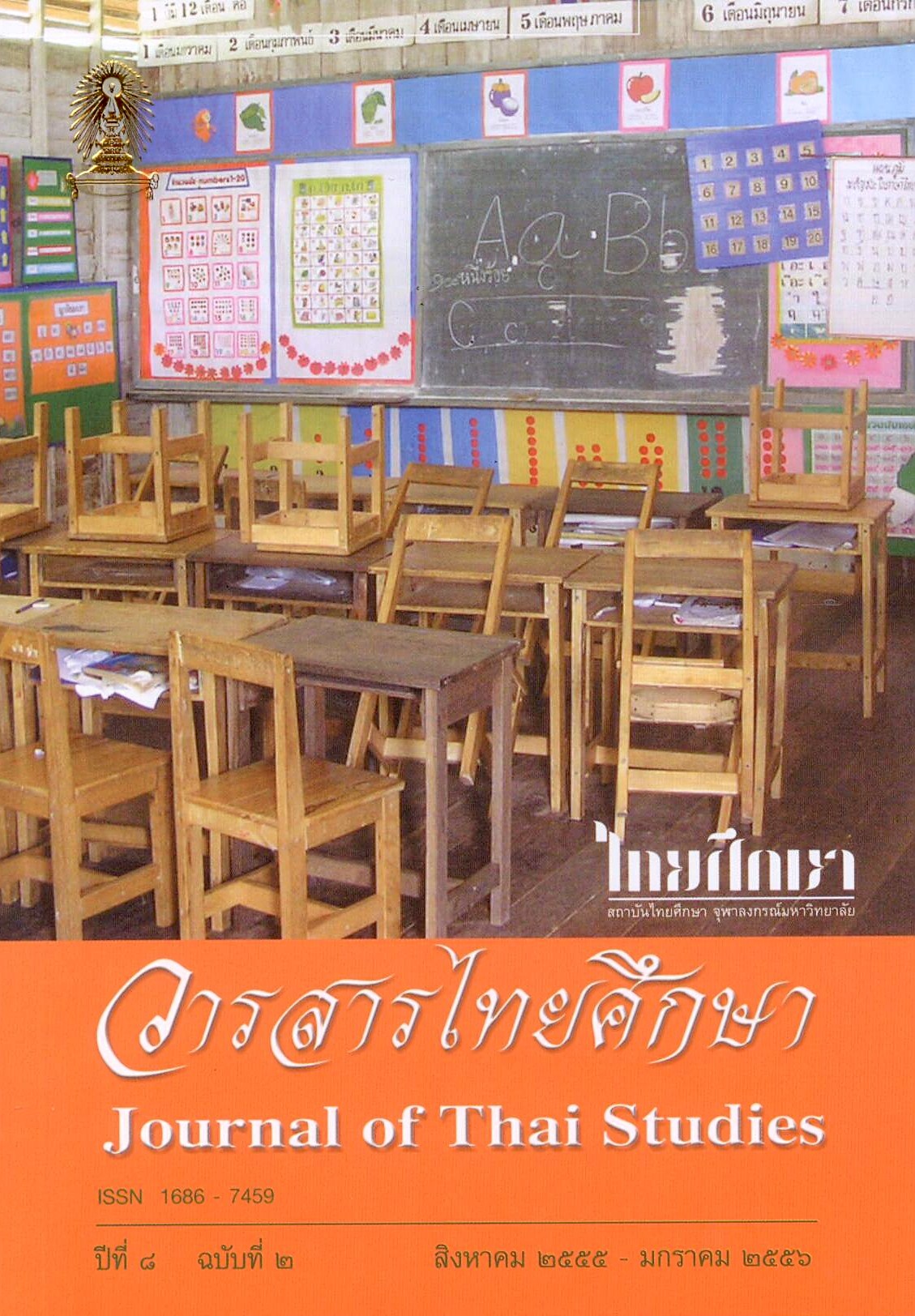The Transmitter of Traditional Knowledge is the Holder, Not the Owner
Main Article Content
Abstract
The concept of Intangible Cultural Heritage (ICH) is derived from UNESCO’s Convention for the Safeguarding of the Intangible Cultural Heritage 2003, which emphasizes the identity and diversity of the culture of a community by encouraging consciousness in safeguarding their own cultural heritage. The transmission of ICH is a part of the preservation of ICH consisting of two kinds of holders: traditional knowledge holders and community culture holders.
This article focuses on the role of traditional knowledge holders, which are the core of the process of ICH’s transmission. Such roles are those of the three case studies: an artist, a Buddhist monk and an ancestral spirit medium. The research shows that both kinds of knowledge holders share a common characteristic – they are willing to preserve and hold the knowledge directly, as well as transmit such knowledge to the next generation. The holders are special people; their acquisition of knowledge is not easy and takes a long period in transmission.
However, it was also discovered that each of the two types of holders have some difference with each other. The difference concerns the aspects of knowledge transmission and the creativity of an artful holder who is free to express their individuality, but can only be created in the frame of old tradition. The holder who possesses knowledge on rites and ceremonies has little or no creativity because they have to adhere strictly to tradition and custom.
Although the knowledge holder has a crucial role in transmitting knowledge, they are not the owner of such knowledge because there is no legal right. Thus, they are always regarded as traditional knowledge holders.
Downloads
Article Details

This work is licensed under a Creative Commons Attribution-NonCommercial-NoDerivatives 4.0 International License.
Journal of Thai studies is licensed under a Creative Commons Attribution-Noncommercial-NoDerivatives4.0 Intenational (CC BY-NC-ND 4.0) licence, unless otherwise stated. Plese read our Policies page for more information on Open Access, copyright and permissions.
References
ดวงหทัย ลือดัง. การสืบทอดประเพณีเทศน์กาเผือกในชุมชนไทยยวน อำเภอเสาไห้ จังหวัดสระบุรี. วิทยานิพนธ์ปริญญามหาบัณฑิต ภาควิชาภาษาไทย คณะอักษรศาสตร์ จุฬาลงกรณ์มหาวิทยาลัย, ๒๕๕๔.
ธนิต ชังถาวร และคณะ. รายงานการศึกษากรอบความคิดการคุ้มครองภูมิปัญญาท้องถิ่นไทย. ศูนย์พันธุวิศวกรรมและเทคโนโลยีชีวภาพแห่งชาติ เสนอต่อกรมทรัพย์สินทางปัญญา กระทรวงพาณิชย์, ๒๕๕๐. (เอกสารอัดสำเนา)
พรรณวดี ศรีขาว. การสืบทอดและบทบาทของพิธีเลี้ยงผีบรรพบุรุษของชาวกูย ที่บ้านละเอาะ อำเภอน้ำเกลี้ยง จังหวัดศรีสะเกษ. วิทยานิพนธ์ปริญญามหาบัณฑิต ภาควิชาภาษาไทย คณะอักษรศาสตร์ จุฬาลงกรณ์มหาวิทยาลัย, ๒๕๕๔.
รัตนพล ชื่นค้า. การสืบทอดการพากย์-เจรจาหนังใหญ่และโขนเรื่องรามเกียรติ์ของครูวีระ มีเหมือน. วิทยานิพนธ์ปริญญามหาบัณฑิต ภาควิชาภาษาไทย คณะอักษรศาสตร์ จุฬาลงกรณ์มหาวิทยาลัย, ๒๕๕๔.
สำนักงานคณะกรรมการวัฒนธรรมแห่งชาติ. มรดกภูมิปัญญาทางวัฒนธรรม. กรุงเทพฯ: กระทรวงวัฒนธรรม, ๒๕๕๒.
สำนักนโยบายและยุทธศาสตร์ สำนักงานปลัดกระทรวงวัฒนธรรม. แผนพัฒนาเศรษฐกิจและสังคมแห่งชาติ ฉบับที่ ๑๐. กรุงเทพฯ: กระทรวงวัฒนธรรม, ๒๕๕๒.
สุกัญญา สุจฉายา และคณะ. รายงานการศึกษาโครงการวิจัยภาคสนามการคุ้มครองภูมิปัญญาท้องถิ่นไทย. ศูนย์คติชนวิทยา คณะอักษรศาสตร์ จุฬาลงกรณ์มหาวิทยาลัย เสนอต่อกรมทรัพย์สินทางปัญญา กระทรวงพาณิชย์, ๒๕๕๐. (เอกสารอัดสำเนา)
อนุสัญญาว่าด้วยการคุ้มครองและส่งเสริมความหลากหลายของการแสดงออกทางวัฒนธรรม (Convention on the Protection and Promotion of the Diversity of Cultural Expressions 2005 (http://unesdoc.unesco.org.)
อนุสัญญาว่าด้วยการสงวนรักษามรดกทางวัฒนธรรมที่จับต้องไม่ได้ (Convention for the Safeguarding of the Intangible Cultural Heritage 2003 (http:www.unesco.org/culture/ich/en/convention)
WIPO. Intellectual Property and Traditional Cultural Expression/Expression of Folklore. Booklet No.1
WIPO. Intellectual Property and Traditional Knowledge. Booklet No.2


